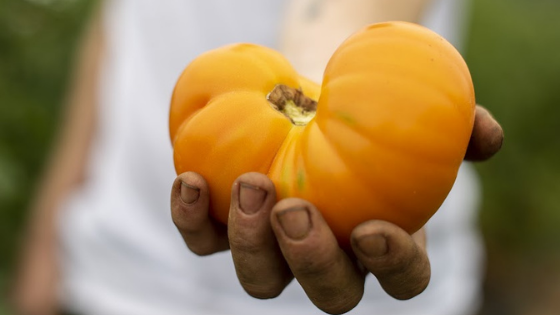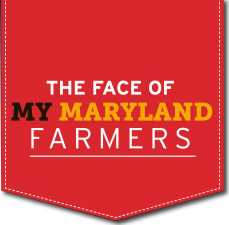 Not all farmers come from a background of generations in the field. For farmer and social justice activist, Emma Jagoz, it grew from more maternal roots. “I wanted to be as healthy as I possibly could be during my pregnancy for my baby and for my own body, so I did a lot of reading on pregnancy and nutrition,” Emma says. “I read that arugula, the peppery salad green, was great for baby brain development. I immediately bought loads of arugula, but after talking with a gardening friend, got the idea to grow it instead to save some money. I built a salad table on my apartment balcony, got seeds, and started growing my own arugula.”
Not all farmers come from a background of generations in the field. For farmer and social justice activist, Emma Jagoz, it grew from more maternal roots. “I wanted to be as healthy as I possibly could be during my pregnancy for my baby and for my own body, so I did a lot of reading on pregnancy and nutrition,” Emma says. “I read that arugula, the peppery salad green, was great for baby brain development. I immediately bought loads of arugula, but after talking with a gardening friend, got the idea to grow it instead to save some money. I built a salad table on my apartment balcony, got seeds, and started growing my own arugula.”
Emma found that growing arugula was very satisfying and increased her crops to include tomatoes, peppers and herbs. “I expanded from my apartment balcony to an in-ground garden in my parents’ backyard,” she says. “As the garden bounties came in, I found myself sharing the excess with friends and neighbors. And that’s when it hit me: I could start a farm.”
Moon Valley Farm hatched from Emma’s journey to transform her desire to work toward global social justice to local action. “I believe that by transforming our everyday actions, like changing what we eat to local and direct, we can ignite global change,” Emma says. “I started Moon Valley Farm with no money, no experience, two tiny kids, a slice of borrowed land, and a vision to raise my kids and unite my community — with vegetables.”
Emma began farming on a small plot of land growing for a 12-member Community-Supported Agriculture (CSA) program. She now farms on her own 25 acres in Woodsboro, Maryland, with a much larger client base. “We grow specialty and staple vegetables and herbs for a year-round CSA program and for restaurants in Washington, D.C., Maryland and Virginia.”
Emma also grows seedlings for gardeners in the spring, and serves her county school system with the farm’s hyper-local produce. “We grow hundreds of varieties of veggies and herbs — everything from staple and common veggies like red tomatoes and slicing cucumbers to rare and specialty herbs, peppers, ginger and turmeric.”
Buying local and organic is important to Emma. The land she purchased in Woodsboro in early 2020 had been in conventional production, so she started the required three-year transition period to convert it to organic. The farm is on track to be officially certified organic in 2022. “Being in the Mid-Atlantic region, supporting the responsible stewardship of our land directly impacts the health of our Chesapeake Bay and natural resources,” she adds. “Spending your money on local and organic farms directly impacts the local economy as well, as we are then able to hire more employees and steward even more land.”
Emma offers this advice when purchasing produce: Know your farmer and eat what is in season. “Getting to know the seasons intimately through food is a powerful way to connect with the environment you’re living in, and knowing your farmer is the quickest way to do that,” she says.
Feeling inspired? Here are three tips to enhance your home garden.
- Purchase seedlings from a local grower, not only to support local farms but to know where your veggies come from.
- Plant flowers near vegetable gardens to attract insects to encourage pollination.
- Start off with a strong foundation by testing your soil to ensure that it’s healthy.
Hungry for more? Learn more about beneficial pollinators and insects. Read why all farms aren’t organic. Visit an urban farm to see how farming is done in the city.
Sign up for our newsletter and find us on Facebook, Twitter and Instagram.

